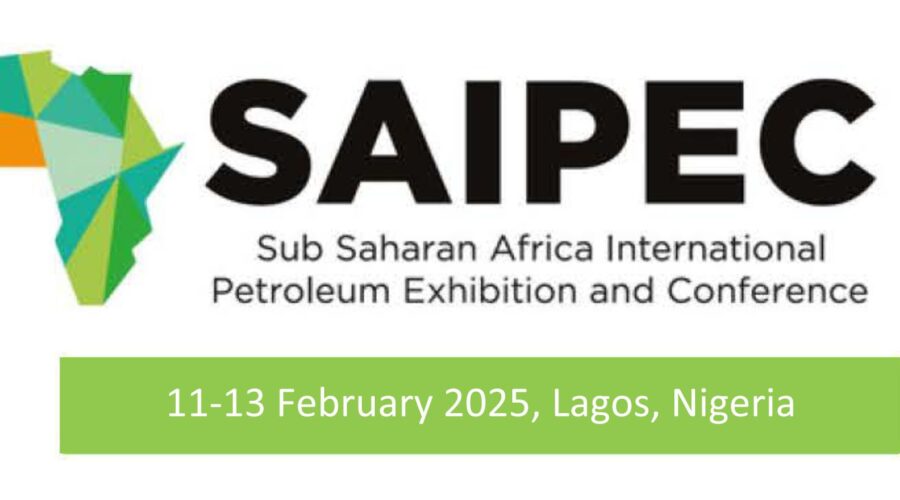The Urgent Need To Abandon The Nigerian Local Content Development And Enforcement Commission Bill, 2020
Paper by: O. M. Atoyebi, SAN.
1.0 INTRODUCTION
The multiplicity of laws does not guarantee the attainment of their intended purposes. If anything, such a slippery move only results in unwarranted conflicts in the application of their provisions which hampers national growth, saps the economy of its hard generated wealth and creates an atmosphere of administrative cum governmental underperformance.
The Nigerian Local Content Development and Enforcement Commission Bill of 2020 (hereinafter referred to as “The Commission Bill”) which undertakes to repeal the Nigerian Oil and Gas Industry Content Development Act of 2010 (hereinafter referred to as “The NOGICD Act”) and to enact the Nigerian Local Content Development and Enforcement Commission Act, to Establish the Nigerian Local Content Development Commission and to Provide for Comprehensive Framework, Structures, Programmes and Schemes for the institutionalisation and strengthening of Nigerian Local Content in all Sectors of the Nigerian Economy for Self Sufficiency, Job Creation, International Competitiveness of Nigerian Domestic Businesses and Economic Diversification and for Matters Connected therewith, is one of such would-be laws that smacks of the above espoused shortfalls if allowed to come to life.
This piece highlights the unwarrantedness of this legislative exercise vis-à-vis the well informed views expressed by concerned key players in the economy on the need to weigh its pros and cons against the ultimate objective of national development and economic coherence.
2.0 IMPRACTICABILITY/UNENFORCEABILITY OF THE BILL
The Commission Bill for all intents and purposes, is at best, speculative, in that it is fashioned to provide for a sector-to-sector local content entrenchment policy in an array of transactions and aspects of the economy (by extension, in every sector or proposed sectors) as indicated by Clause 1 therein, which will supposedly be made possible through the functionality of departments/directorates across all relevant Ministries, Agencies and Parastatals of the Federal Government under the overall superintendence of the enforcement commission, without making provisions for a tenable, realistic and practical framework for the actualization of this mandate.
Even where it attempted to provide for the functions of the regulatory bodies it tries to create, it fell short of specifically outlining how it will address the attendant issues of complexity in, and increased cost of governance, scampering off of prospective foreign investors and the many negative impacts of discarding the NOGICD Act, all of which are sure to accompany the implementation of its provisions, if ever they can be so implemented.
Efforts should rather be centered on properly amending the NOGICD Act and not erasing it (as there are twin bills already in progress before the House for this sole and excellent purpose) to accommodate novel global issues hovering around Oil and Gas activities and extend the tentacles of local content in the country.
As if to amplify the strength of the foregoing indisputable assertion, the critically thought submission of an industry expert on the subject, readily comes to the fore, thus:
“The procedural bureaucracy (complexity in governance), high Surcharge of 2% capable of driving away foreign investors, insufficient governance system and overthrowing the NOGICD Act (which will automatically occasion the subsumption of the Nigerian Content Development and Monitoring Board), the increased cost of governance with the agencies and departments to be established, and the immeasurable targets aimed to be realized by this Bill, are the obvious shortcomings it is ingrained in.
Rather than repealing the NOGICD Act, the Act should be retained and allowed to act as a signpost to the Sector- driven Local Content policies about to be created, and the government and industries need to try to carry out the ground work required in all the contemplated sectors to be sure that these sectors require the application of Local Content that was seen in the Oil and Gas Sector coupled with the dire need to have a proper infrastructural framework for the local content to thrive in these diverse sectors”.[1]
This hard truth, which some people would not come to terms with, further buttresses not only the impracticability of having such an Act in place, but equally spells out the unavoidable futility of any effort geared towards enforcing its lofty but impossible provisions which are devoid of any practical working mechanism.
Taking a leap from other jurisdictions like Trinidad & Tobago will absolutely reveal that even if there is the remotest need to enact such apremature legislation, it is not a mere walk in the park.
Deliberate and consistent efforts must first be taken along with a crystal blueprint to ensure workability and operation over a sufficient duration of time enough to sample all angles of the far-reaching impacts it will yield on the various sectors of the economy and without any need whatsoever to dismantle a viably excelling structure as the NOGICD Act (which went through an experiment for a little over a decade before it was eventually birthed and has kept an impressive track record of promoting and adding to the national capital base since it was enacted).
T&T had a gas vision after the downfall of its Petroleum sector owing to the lack of proper infrastructure, but the government kept pushing for the Gas sector to thrive and with the application of local content policies, they were able to succeed.
It is imperative to have the right partners, carry out the necessary underground work and maintain a strong leadership alongside a proper infrastructure for enforcement[2].
3.0 MULTIPLICITY OF LAWS
The bill does not fill any lacunae in other legislations or purport to cover a new field due to the fact that other legislations are actively involved in areas the bill seeks to address.
While attempting to introduce a new law, with much respect to the drafters and sponsors of the bill, what it has succeeded in doing is to replicate some aspects of the NOGICD Act, as it were, while tweaking them so as to extend its application to other sectors.
This further buttresses the irrefutable fact that the Act has established a near-perfect model for the attainment of a true Nigerian Local Content objective in the Oil and Gas Industry, and any attempt to repeal it will only occasion the demolition of a solid structure that has served and still services (and if properly fine-tuned, will continue to serve) the economy so well.
What the Bill has apparently done by virtue of some of its provisions is to trespass into the territory of other legislations and bodies already statutorily mandated to discharge given functions and exercise certain powers. This will inevitably lead to needless proliferation of existing laws and the consequence thereof is the rise of conflicts in their application and interpretation with a rippling effect on other arms of government such as the Courts, which will be bombarded with numerous, if not frivolous suits, seeking to harmonize and interpret the provision of one law against the other.
By so doing, time, resources and manpower, which ordinarily would have been channeled towards speedy administration of justice and even other quasi-judicial assignments,will be dissipated.
All of these would likely result from the introduction of an ill-timed and needless law, not to mention that overlapping laws would only send a wrong signal to foreign partners and stifle the prospect of ever attaining a large export scale on the global radar[3].
For instance, the Immigration Act has made sufficient provision on the mandatory obtainment of Visa and the issuance of Work permit. If measures had been centered on enforcing the provision of this formidable law, the need to have it reproduced in a vague Local Content Act, which will have elastic financial consequences, would not have been contemplated to begin with.
Places like Abu-Dhabi, have ensured the rigid enforcement of their immigration laws which saw it rise through the ranks to become a global force to reckon with, in terms of a wealthy indigenous structure[4].
4.0 JOB CREATION WILL WORK THE TRICK
It goes without saying that the livewire of every economy resides in the strength of its workforce in a productive alliance with a highly innovative and goal-oriented private sector.
The legislators must, as a matter of prudence, come to terms with the fact that a robust atmosphere replete with a gainfully employed teeming populace is much desired to address the issue of having a truly Nigerian economy where goods, services, activities and transactions will be produced and anchored by the bulk of the citizens, without the need to squander efforts in enacting a law which will only create bureaucratic bottlenecks, misdirect the focus of government in its policy making assignment, place competent individuals in dysfunctional offices and return us to ground zero, despite having come thus far, courtesy of what obtains in the Oil and Gas Sector, being a revenue generating rather than consuming sector.
In fact, there should be job creation for common persons and youth engagement for domestication to succeed[5] and the country cannot afford to create vacuums without occupying them[6].
In Lebanon, the Government failed to create jobs for its citizenry which led to a colossal emigration by the people in dire search of greener pastures across the seas. This resulted in the incursion and occupation of all the sectors by alien nationals and expanded their dominance over the economy – a disguise case of neocolonialism. The Government realized this a tad too late and is now galvanizing efforts to undo the monumental error which seems abortive.
Nigeria is too endowed a country to let the story of Lebanon and other unfortunate countries become its own.
Employment, empowerment and enhancement in the arena of research, development and technological drive is more than desired to address the lingering issue of attaining a purely local content lay out of the economy, without the need to create a legislation in respect of it, it will be attained almost seamlessly.
5.0 CONCLUSION
The drive to enact the Commission Bill has not been carefully thought out and tested against all the impending and unintended consequences it will usher in if assented to. It is almost like a race to an imaginary finish line, hence the need to jettison its passage into law and quickly too, for the reasons projected above among others.
The idea appears progressive no doubt, and can even culminate into the game-changer and booster of the Nation’s global economic repute. However, until it is properly rejigged and made specifically for the sectors that are ripe enough to have it (and for the time being, only the Oil and Gas sector has proven itself worthy in that light), with all the loopholes well sealed, the initiative remains a right step in the wrong alleyway.
Hence, the re-emphasis, local content is not, and cannot be a one size fits all. It has and continues to excel in the leading sector via the NOGICD Act, the successes must if anything, be capitalized on, for an even advanced national growth, rather than smoldering it to untimely death – it would be a humongous disservice to the nation for all eternity as the different sectors of the economy should be allowed to have a life of their own.
It should not be seen as an attempt to scrap an Act, which, over the years, has been perceived to be functioning properly (of course with its own challenges that needs to be worked on and perfected).
A sector-by-sector approach in the creation of the set(s) of Acts should rather be considered (for those sectors that are ready and practicable), as against an attempted hasty move to lump all the sectors together in a bid to pass a law, even when it is evident that some of these sectors are clearly not ready and would have to be dragged along by other ready sector(s).
6.0 ACCREDITATION
[1]Ijeoma Miriam Nwakuche, Group Head, Contracts and Procurement AARR Investment Limited, “Technical Review of the Enforcement Commission Bill,2020”, Being a Day-2 Presentation at The Nigerian Content Virtual Consultative Summit Hosted by The Distinguished Chairman, Senate Committee On Local Content – Senator Teslim K. Folarin(OFR) And The Honourable Chairman, Local Content Committee of the House of Representatives, Hon OchilegorIdagbo On 16th And 17th September 2020 by 12:00pm.
[2] Mr. Anthony Paul, “Expanding the Nigerian Content Possibilities; Lessons from Trinidad and Tobago”, being a presentation at the virtual summit, ibid.
[3] Sani Dangote, Vice President Dangote Group of Companies, being a panelist at the Virtual Summit, supra note 2.
[4] Babatunde Raji Fashola, SAN, Honourable Minister of Works and Housing, being a panelist at the Virtual Summit, supra note 2.
[5] Sani Dangote, supra note 3
[6] Babatunde R. F., SAN, supra note 4




